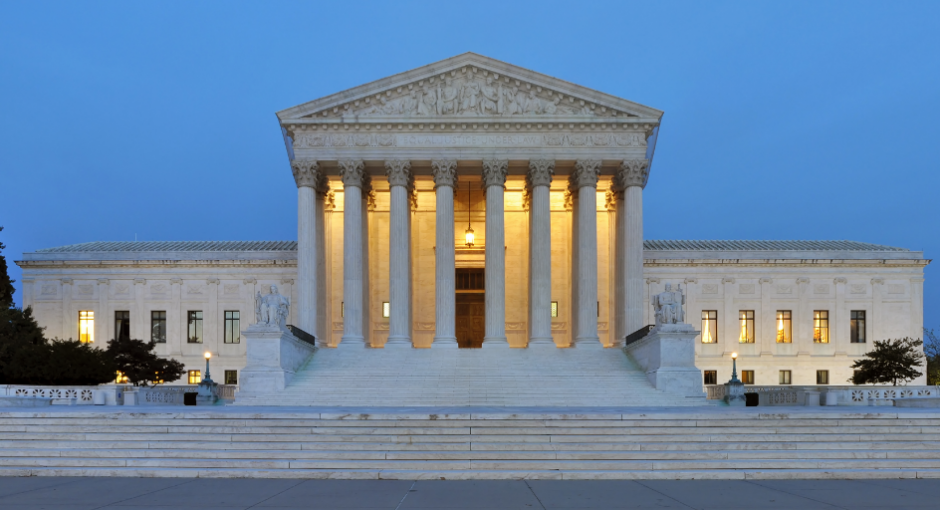340B hospitals’ challenge to Medicare Part B drug reimbursement cuts was not the only case on the U.S. Supreme Court docket this week that could have a significant impact on the program.
On Monday, the justices heard the case of Becerra v. Empire Health Foundation, an important case related to determining Medicare disproportionate share (DSH) payments to hospitals. Conservative justices on the court appear poised to overturn a longstanding rule regarding how to calculate the Medicare DSH payment formula. This could result in more DSH hospitals becoming eligible for the 340B program since hospital eligibility is based partially on their Medicare DSH adjustment percentage.
“If the court rules in favor of the hospitals, some hospitals will see a higher DSH percentage, which will make more hospitals eligible for 340B,” said Barbara Straub Williams, a principal with the Powers Pyles Sutter and Verville law firm in Washington, D.C.
During oral arguments in the case, Becerra v. Empire Health Foundation, on Monday, the court’s conservative majority also seemed inclined to put a tighter leash on federal agencies when it comes to drafting regulations. Doing that could help 340B covered entities in some matters but harm them in others.
The case stems from a 2005 rule promulgated by the U.S. Centers for Medicare & Medicaid Services (CMS) stating a patient entitled to Medicare must be counted in the numerator and denominator of the Medicare fraction for DSH. Those patients must be included regardless of whether Medicare actually pays for the patient’s care, such as when Part A benefits are exhausted or Supplemental Security Income benefits kick in.
The U.S. Ninth Circuit Court of Appeals invalidated that rule after it was challenged by Empire Health Foundation, a health care philanthropy in eastern Washington State focusing on indigent populations, and safety net facility MultiCare Valley Regional Hospital in Spokane. The U.S. Department of Health and Human Services (HHS) appealed the Ninth Circuit’s decision to the Supreme Court. The high court accepted the case in July.
It became clear nearly immediately during oral arguments on Monday that the six-justice conservative bloc was highly skeptical of CMS’ position.
Associate Justice Brett Kavanuagh, nominated by President Donald Trump, said there were numerous “problems” with CMS’ position, including the fact it may have flip-flopped on how the rule should be written between the release of the draft and final rule nearly 17 years ago.
Chief Justice John Roberts, nominated by President George W. Bush, also noted that the actions of CMS appear to be at variance from Congress. He observed that the legislative body had tried to “tighten the statutory language” governing DSH payments out of what he believed was frustration with CMS.
Assistant Solicitor General Jonathan Bond, who argued the government’s case, noted that Congress had not intervened to change the rule despite it being on the books for nearly two decades.
The conservative justices were also skeptical of how HHS defined the terms “entitled” and “eligible” when discussing Medicare and SSI nearly interchangeably. The inference was that CMS relied on nearly identical interpretations of the terms to bend the rulemaking process in its favor.
Associate Justice Elena Kagan, a nominee of President Barack Obama, was one of the few justices who looked favorably on CMS’s position. She said it “seems a lot more sort of simple and straightforward than” the health care providers’ position.
Another issue argued was the application of what is known as “Chevron deference.” That’s in reference to a landmark 1984 case that allows agencies such as CMS to undertake a “permissible construction” of federal statutes for rulemaking purposes when Congress has not directly addressed what was being interpreted. Granting Chevron deference in such a case would render Empire Health Foundation’s argument as moot.
Although liberal Associate Justice Sonia Sotomayor said that Chevron deference should apply in this case, she appeared to be alone in taking that position. Even Associate Justice Stephen Breyer, a moderate selected by President Bill Clinton, said that it should not be applied here because of the last-minute changes CMS made to the rule.
Ron Connelly, another principal with Powers Pyles, noted the fact Chevron deference was questioned was “not a good sign for the government.” And while he observed that it’s difficult to predict the outcome of such cases, he added that Bond received much tougher questions than the Empire Health Foundation attorney.
The Supreme Court is expected to issue a decision in the case by mid-2022.


